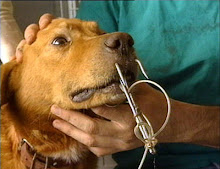Good News About Dog Bites and How to Make it Better
Dog bites represent a tiny fraction of the injuries treated in the nation's emergency rooms. Dog bites are, on average, far less severe than injuries we suffer from other common enjoyments. The good news about dog bites will be even better, following a model of responsible pet ownership.
There are 308 million humans and 75 million dogs in the U.S. The majority of dog owners view their dogs as members of the family. Dogs provide us joy, companionship, love and laughter.
Bites constitute a tiny fraction of our hundreds of millions of daily interactions with dogs. Moreover, U.S. public health statistics show that the risk of bites from dogs is slight when compared with other risks Americans accept on a daily basis.
According to the Centers for Disease Control database, for the years 2000-2008, dog bites accounted for less than 1% of the injuries treated in the nation's emergency rooms.
A person injured by a dog is far less likely to be injured seriously than those who suffer other kinds of injuries. For example, over 5% of the 4.6 million Americans who went to an emergency department during those same years because they had been injured on a bicycle were subsequently admitted to a hospital or treatment facility. Over 9% of the 70 million Americans who went to the emergency room because they fell down were admitted.
Only 1.9% of dog bite victims were.
As the human and canine populations have grown - the canine population at a faster rate than the human one - reports of dog bites to major metropolitan health departments have fallen substantially. Even the U.S. Postal Service, for whom dog bites to delivery personnel have been a continuing source of concern, has seen reports of bites decline by more than 50% since 1983.
As low as the risk from dogs is, National Canine Research Council takes the occasion of National Dog Bite Prevention Week, May 16 - 22, to highlight a successful responsible pet ownership model that can reduce that risk even further. Studies of dog bite injuries by American researchers have usually concluded with reminders of an owner's responsibility for his or her dogs.
Calgary, Alberta's Animal & Bylaw Services has successfully translated those recommendations into a plan of municipal action. Calgary enacted what was titled the Responsible Pet Ownership Bylaw. (In the interests of full disclosure, we proudly point out that Animal & Bylaw Services Director Bill Bruce is an advisor to NCRC.) It codifies four simple principles: 1. License and provide permanent identification for your pets; 2. Spay or neuter your pets; 3. Provide training, socialization, proper diet and medical care for your pets; and 4. Do not allow your pets to become a threat or nuisance in the community.
The result in Calgary has been spectacular. For 2008, among the 1.1 million citizens of Calgary, there were only 145 dog bites.
Organizations nationwide are offering advice and educational resources to help children and adults be safe around dogs. NCRC urges Americans of all ages to take
advantage of those resources, so that we live companionably with the 75 million dogs in our midst.
And whenever dog-safety issues come up in the community, NCRC urges all Americans to remember how Calgary solved the problem.
About Karen Delise & The National Canine Research Council
Karen Delise is the Founder and Director of Research for the National Canine Research Council, and the author of The Pit Bull Placebo: The Media, Myths and Politics of Canine Aggression (Anubis Publishing) She can be reached at kdelise(at)ncrcouncil(dot)com. The mission of The National Canine Research Council is to publish accurate, documented, reliable research to promote a better understanding of the human-canine bond.
Monday, May 17, 2010
Subscribe to:
Post Comments (Atom)




No comments:
Post a Comment